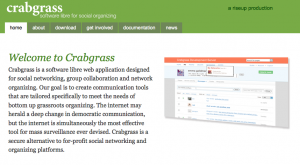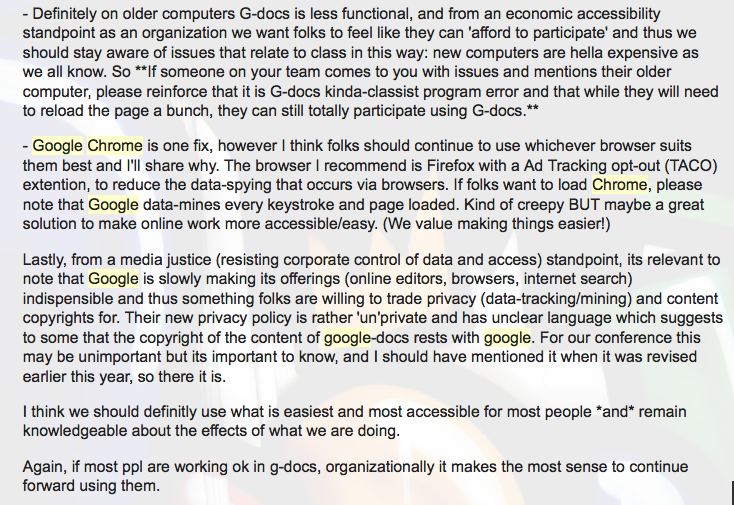Why collaborate with a specific technology? Why not just get our work done some other way and all hand it in? For starts, in a collective–or any horizontal project–there’s no manager to hand it in to, no boss, no one to organize the work for you but you. Getting organized is a systems-level problem that best be addressed as soon as possible.
And for projects that have principles that base around justice, equality, accessibility, and collective or direct-democratic decision making, the choice of platforms is a political decision.
For the 2012 Femme Conference, we needed to set up a system where 14 core organizers and 30 subcommittee members can work together — both in terms of accessibility and capacity. Systems we chose thus had to be not overly hard to learn or use, but still must allow for organization and effectiveness.
 We looked at possibly using:
We looked at possibly using:
I tried to get people to use Crabgrass [open source!] or Basecamp [more useful!], but the request from the majority of the other organizers was that most people had existing Gmail accounts and were familiar with the interface, so we went with G-docs
- Theory: Choosing the achievability of agility and accessibility over principles, choosing to fight battles later with other technologies. For example, I decided to force WP participation rather than “force” the use of a platform that no one would use.
In an ideal build we’d have Crabgrass or Open Atrium sitting on a Drupal site, but in an ideal world we’d be paying someone to build this. Better to pick that which will actually happen and — most importantly, that which people are willing to interact with.
- Theory: I like to occassionally remind people that Gmail is a “begged” resource that datamines our every word typed in, just to raise awareness of the issues in using “free” software that’s not Free/Libre software.

